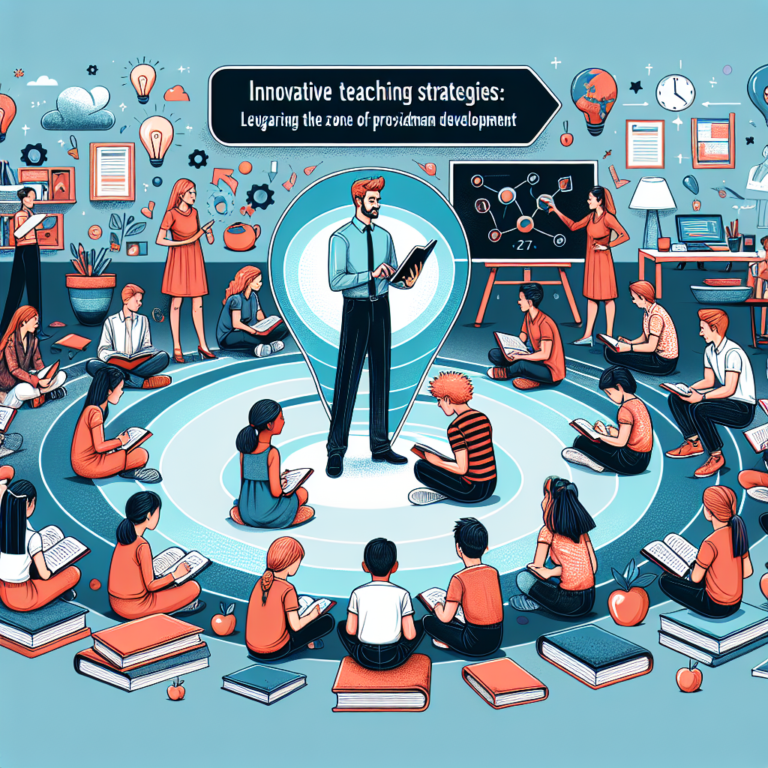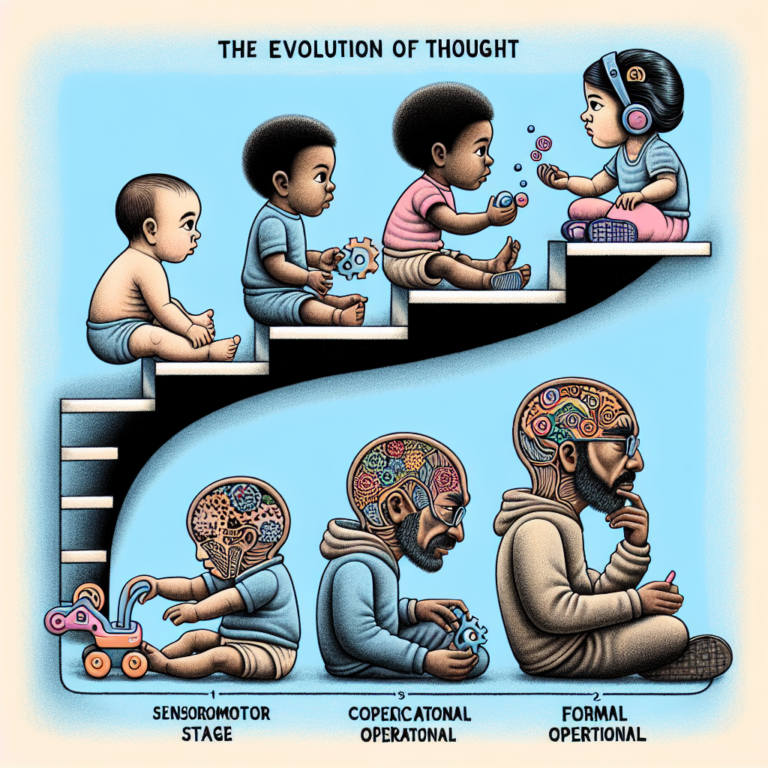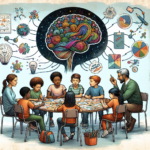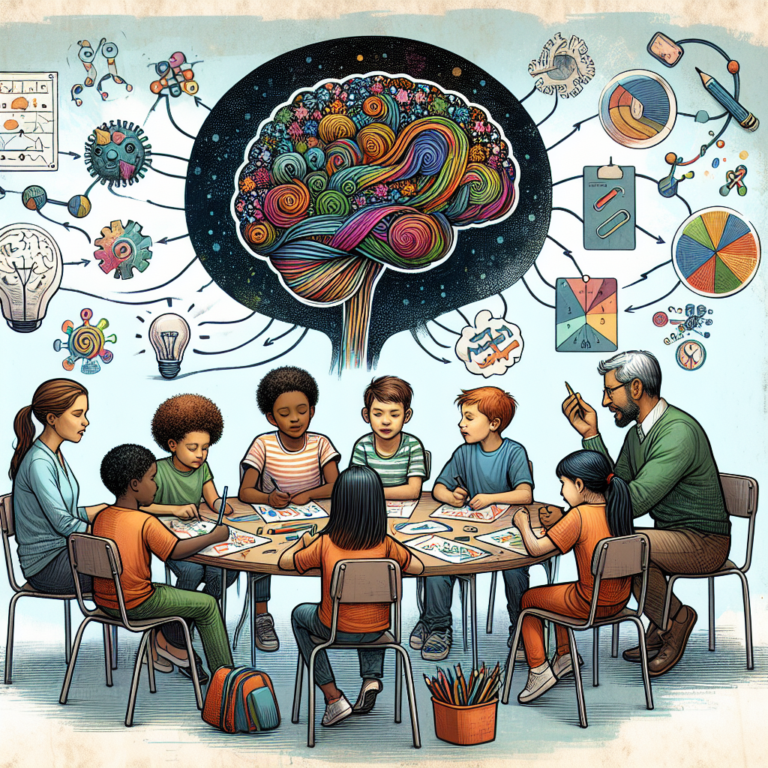
Introduction
In an ever-evolving world, the modes of education must adapt to prepare students not just for tests, but for life. The Journey of Discovery: Implementing Inquiry-Based Learning in Schools is an essential approach that fosters critical thinking, creativity, and the ability to navigate complex problems. This educational pedagogy encourages students to ask questions and seek answers through exploration and collaboration, leading to profound learning experiences.
Imagine a classroom where students are not just passive recipients of information but active participants in their learning journey. This article dives into the world of inquiry-based learning, showcasing its effectiveness, practical applications, and inspiring transformations.
What is Inquiry-Based Learning?
Inquiry-Based Learning (IBL) is an educational approach that emphasizes the role of questioning and investigation in the learning process. It propels students into active learning by encouraging curiosity and fostering an environment where they seek to understand rather than memorize.
Key Elements of Inquiry-Based Learning
Student-Centered Approach: Shifts the focus from the teacher as the primary information source to students taking charge of their learning.
Questioning: Encourages students to ask open-ended questions, promoting deeper thinking and investigation.
Collaboration: Facilitates teamwork, allowing students to share ideas, challenge assumptions, and build knowledge collectively.
Reflection: Incorporates metacognitive skills where students assess their learning and thought processes.
- Research: Engages students in gathering and analyzing information to form conclusions based on evidence.
The Importance of Inquiry-Based Learning in Today’s Classrooms
The pedagogical transformation toward inquiry-based learning is more than a trend; it’s a necessity. Here’s why:
1. Enhancing Critical Thinking Skills
Table 1: Benefits of IBL on Critical Thinking
| Benefit | Description |
|---|---|
| Increased Engagement | Students are more invested in their learning process when pursuing their interests. |
| Deeper Understanding | Encourages analysis and synthesis of information rather than rote memorization. |
| Problem-Solving Skills | Prepares students to tackle real-world challenges effectively. |
By fostering independent thought and analytical skills, students become adept at approaching problems creatively and critically.
2. Preparing for the Future Workforce
In a job landscape that increasingly demands adaptability and innovative thinking, the Journey of Discovery: Implementing Inquiry-Based Learning in Schools prepares students for the realities of the workforce. They develop skills like collaboration, creativity, and problem-solving that employers value.
3. Cultivating Lifelong Learners
Inquiry-based learning instills a love for learning in students. As they engage in exploration and discovery, they not only acquire knowledge but also learn how to learn—an invaluable skill for their future endeavors.
Implementing Inquiry-Based Learning: A Step-by-Step Guide
Successfully embedding inquiry-based learning into a school curriculum requires strategic planning and execution. Here are some steps to ensure effective implementation.
Step 1: Professional Development
Teachers must first understand the principles and practices of inquiry-based learning. Workshops, training sessions, and seminars can equip educators with the tools they need for success.
Step 2: Curriculum Design
Curriculums should be designed to be flexible, allowing for the integration of inquiry-based projects. Here’s how:
- Interdisciplinary Units: Integrating subjects (science, arts, geography) can stimulate greater inquiry.
- Project-Based Learning: Assignments that require research and project completion can exemplify inquiry principles effectively.
Case Study: Forest Hill Academy
At Forest Hill Academy, educators revamped the science curriculum to include a project where students investigate local ecosystems. The results were significant—increased engagement and improved scientific literacy among students.
Step 3: Foster a Safe Learning Environment
Creating an environment where students feel safe to ask questions, make mistakes, and express ideas is crucial. This can be encouraged through:
- Open communication
- Respectful discourse
- Constructive feedback
The Role of Assessment in Inquiry-Based Learning
Assessment in inquiry-based environments differs from traditional approaches. Here’s how educators can assess student progress effectively.
1. Formative Assessment
Regular check-ins can guide the learning process. Tools such as:
- Portfolios
- Reflection journals
- Peer assessments
2. Performance-Based Assessment
Instead of standardized tests, performance assessments allow students to demonstrate their understanding through practical applications of their knowledge.
Table 2: Assessment Methods
| Method | Description |
|---|---|
| Portfolios | Collections of student work over time that show growth and inquiry processes. |
| Reflection Journals | Encouraging students to articulate what they learned during their inquiries. |
| Peer Reviews | Students assess each other’s work, promoting collaboration and critical feedback. |
Challenges in Implementing Inquiry-Based Learning
While the benefits of inquiry-based learning are clear, several challenges may arise during its implementation.
1. Resistance to Change
Many educators are accustomed to traditional methods. Professional development and continuous support are vital to facilitating this shift.
2. Curriculum Constraints
In some regions, standardized testing and rigid curriculums can stifle creativity. Advocating for flexible curricula can help address this issue.
3. Classroom Management
Balancing an inquiry-based classroom can be demanding, requiring effective management strategies to ensure all students stay engaged and focused.
Success Stories: Schools Leading the Way
Case Study: Greenfield High School
Greenfield High School integrated inquiry-based learning into its social studies curriculum. Students embarked on a project to understand community needs and presented solutions to local government. This project not only improved student engagement but also fostered community involvement.
Case Study: Lincoln Elementary
At Lincoln Elementary, teachers transformed their classroom into an inquiry-driven space where students explored history through role-playing and simulations. The school reported a marked increase in student participation and enthusiasm for learning.
Conclusion
The Journey of Discovery: Implementing Inquiry-Based Learning in Schools is not merely an educational shift; it’s a movement towards a more engaging, student-centered approach to learning. By fostering inquiry-based practices, schools can unlock hidden potentials in their students, nurturing curious, capable, and innovative learners.
As we move forward, let’s embrace this educational evolution, inspiring students to embark on their unique journeys of discovery that will serve them far beyond the classroom walls.
FAQs
1. What is inquiry-based learning?
Inquiry-based learning is an educational approach where students actively engage in asking questions, investigating, and exploring topics, leading to deeper understanding and critical thinking.
2. How can teachers integrate inquiry-based learning into their classrooms?
Teachers can integrate inquiry-based learning by designing flexible curricula, promoting open-ended questions, fostering collaboration, and using performance-based assessments.
3. What are some challenges of implementing inquiry-based learning?
Resistance to change, rigid curricula, and classroom management can pose challenges. Continuous professional development and advocating for flexibility can help overcome these barriers.
4. How do students benefit from inquiry-based learning?
Students benefit from enhanced critical thinking skills, improved engagement, and preparation for real-world challenges through inquiry-based learning experiences.
5. Are there any successful examples of inquiry-based learning in schools?
Yes, several schools, such as Forest Hill Academy and Greenfield High School, have successfully implemented inquiry-based learning and reported significant improvements in student engagement and learning outcomes.
The Journey of Discovery: Implementing Inquiry-Based Learning in Schools inspires a new paradigm of education that can shape the leaders of tomorrow. Through strategic implementation and a commitment to fostering inquiry, schools can create transformative learning experiences for every student.















